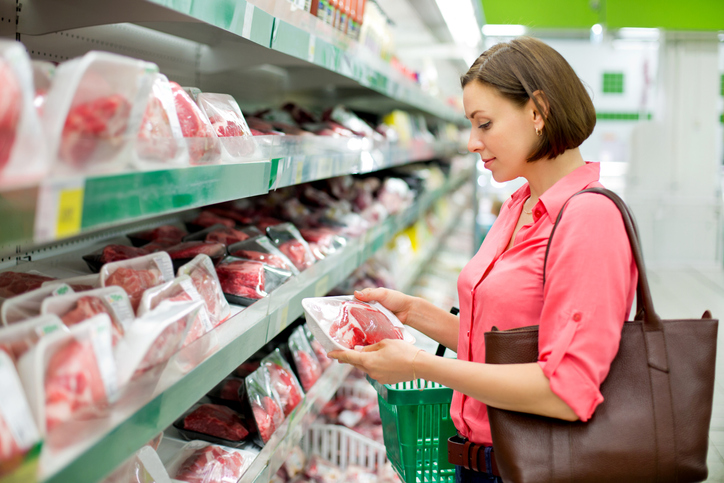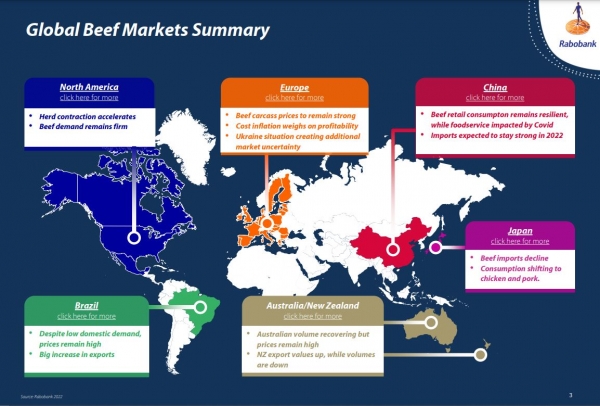However, with Russia having a less prominent role in global beef markets than five years ago, the analysts, in their latest quarterly report on the sector, do not expect big impacts on global beef markets.
However, indirect impacts are possible if the feed complex remains under pressure due to the conflict, they acknowledged.
High beef prices
Ongoing strong demand and more limited supplies have kept global beef prices high, but cost pressures are flowing into the supply chain, finds the report.
Over the past two years, retail beef price movements have been phenomenal, driven largely by strong consumer demand and some supply shocks, noted the analysts.
In Q4 2021, beef retail prices in the US were 23% higher than the five-year average and in China they were 24% above the five-year average.
“In many cases, this increase in prices was caused by demand pull. With supply unable to keep up, the increase in demand has created an imbalance in the market and as a result beef prices have lifted,” explained Angus Gidley-Baird, senior analyst, animal protein, Rabobank.
Supply chain costs on the rise
Supply chain costs continue to rise, and will test consumers’ willingness to pay, he said.
Rising inflationary pressures continue to impact the beef supply chain. Among the cost increases, labor costs, and availability, freight, and energy are some of the largest, along with feed.
According to Gidley-Baird, a number of the cost increases – those associated with labor and sustainability, for example – will be permanent and will need to be accommodated within the supply chain.
Others – such as freight, energy, and feed costs – are more cyclical and over time are expected to decline, allowing some easing of these costs through 2022, he said.
In many cases, the rise in retail beef prices have seen some of the largest increases in history, according to the report.
Beef prices continued to increase through 2021, while many of the other proteins remained stable or contracted. “Further increases in beef prices run the risk of consumers substituting to other proteins or reducing their overall consumption. And we are starting to see signs that they might be reaching their limit,” concluded Gidley-Baird.
Production gains in Australia
Rabobank expects beef production in key producer countries to lift slightly in Q1 2022, before “becoming constant” in Q2 2022.
The largest production gain is likely to come from Australia in Q1, as the country recovers from drought. “We also expect a 2% increase in Brazil production in Q1. The US, entering a contraction mode, is expected to be steady, while volumes in China and in Europe are expected to contract slightly.”



